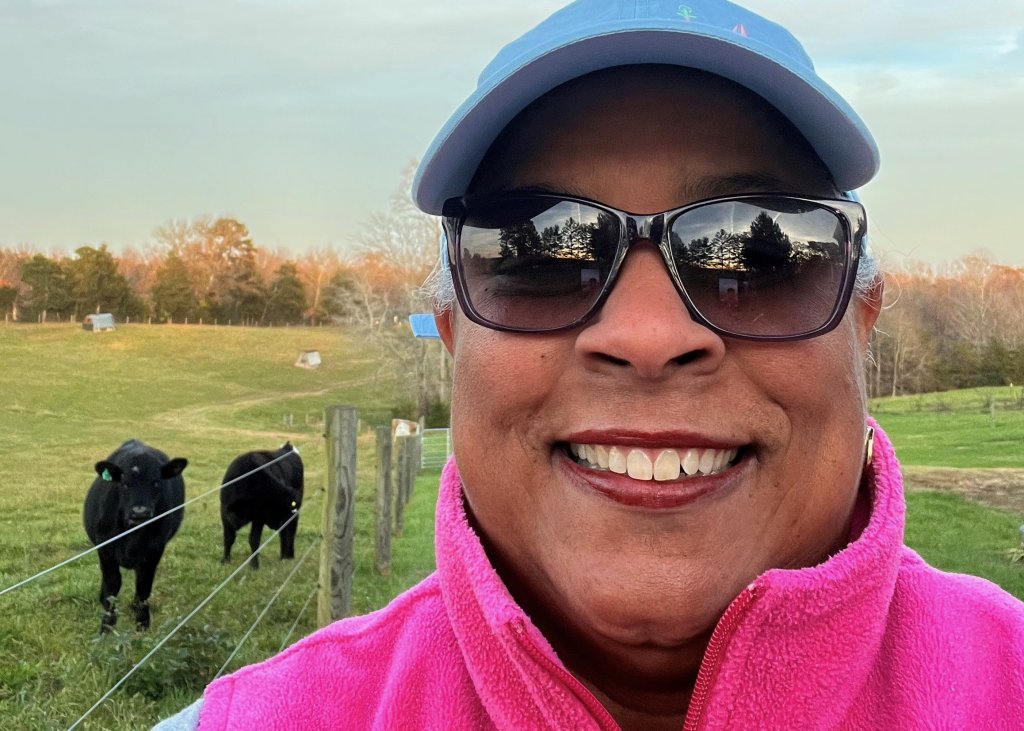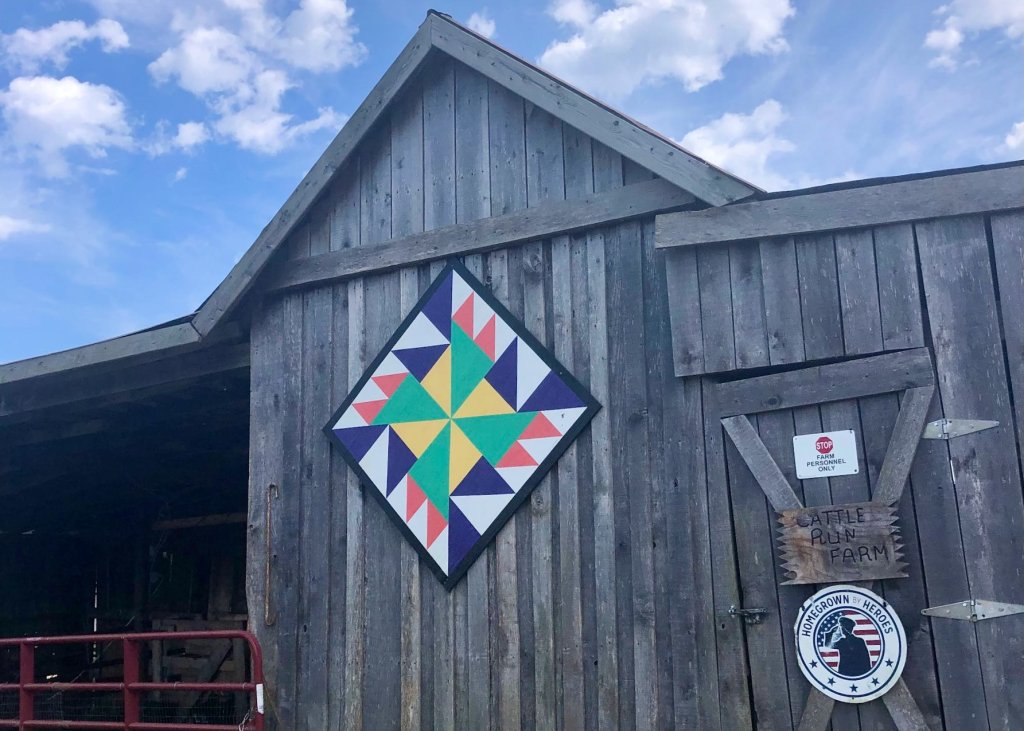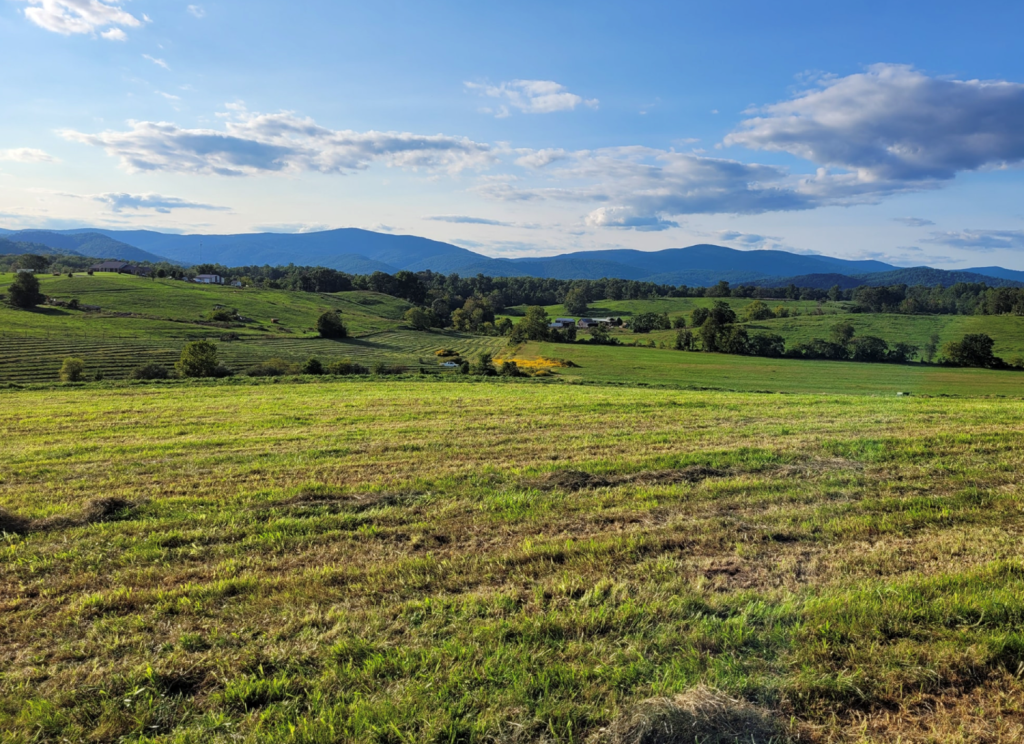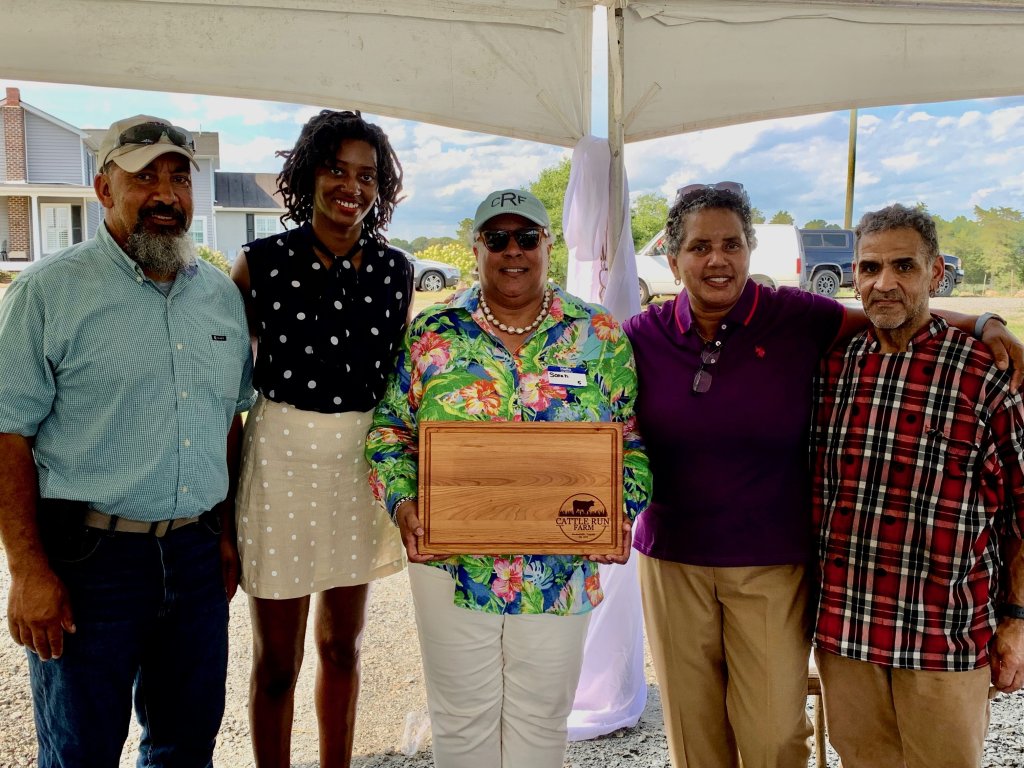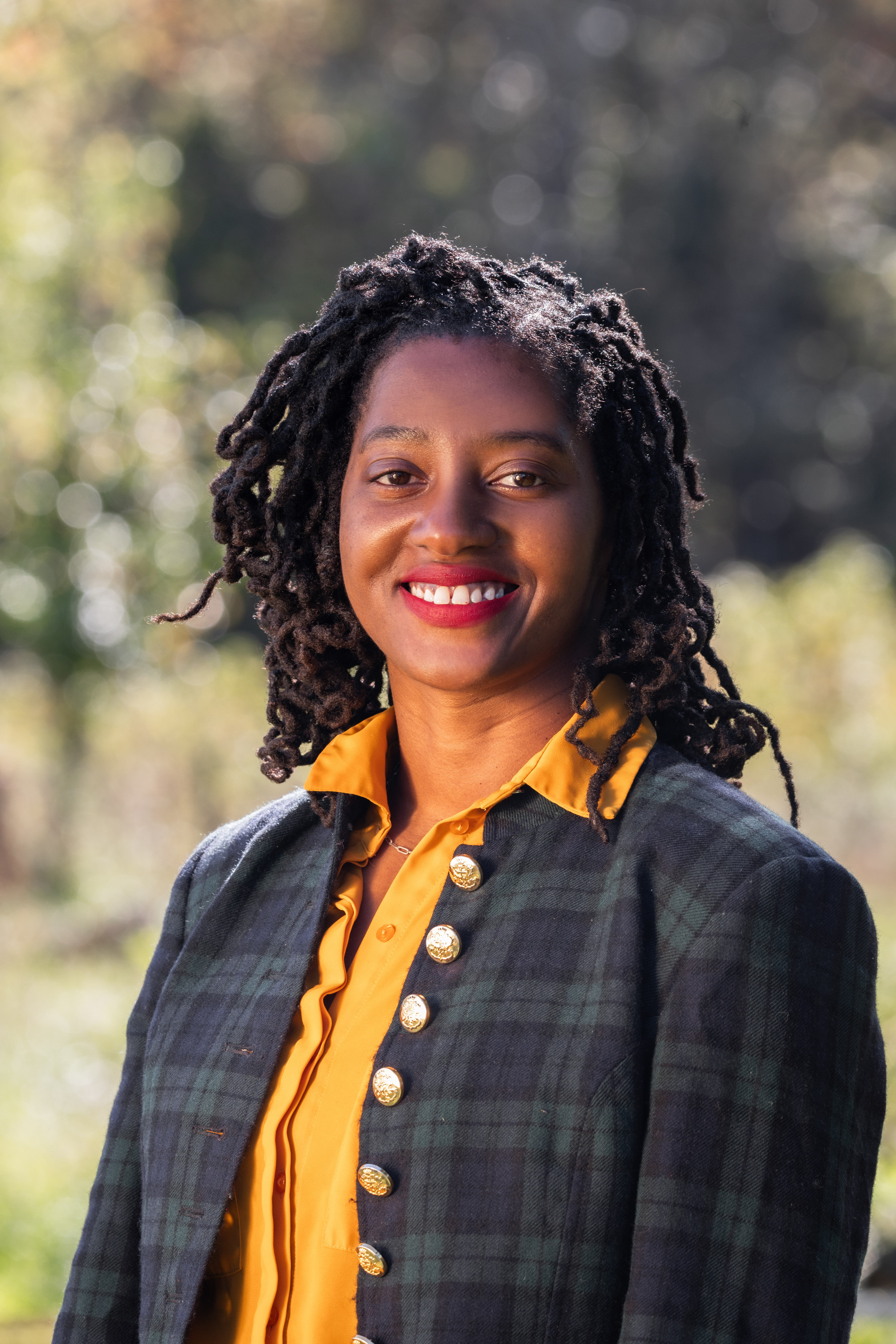From Vision to Impact: How Sarah Morton Is Redefining What a Farm Can Be
When Sarah J. Morton stepped up to lead her family’s farm in central Virginia, she wasn’t just continuing a legacy; she was transforming it. A former USDA meat grader, educator, and workforce advocate, Sarah, alongside her brother, Ralph, has helped turn Cattle Run Farm into a powerhouse of innovation rooted in community, culture, and conservation.
Last year, we introduced Sarah as the inaugural recipient of the Women for the Land Transformational Grant. Now, we’re proud to share what she’s done with that support—and how one woman’s vision is driving regional food security, youth empowerment, and systems-level change in agriculture.
Laying the Groundwork for a More Resilient Future
Cattle Run Farm is a third-generation, Black- and veteran-owned operation rooted deeply in land stewardship and local food systems. With the support of the transformational grant, Sarah and her family have accelerated efforts to complete a multi-species feeding facility that will serve as a demonstration site for regenerative agriculture, climate-smart livestock production, and farmer education.
Over the past year, the Morton family has leaned into infrastructure development, completing excavation, securing water access, developing a site plan, and prepping for construction. In the face of rising costs and supply chain delays, Sarah and her team made the decision to take on the construction themselves.
“We’ve probably entered our seventh phase since taking over the farm,” Sarah says. “My parents had the know-how but not the resources. What we’re doing now is a tribute to them, and to all the families who never had the chance to build something this resilient.”
A Model for Community Food Resilience
Sarah’s commitment to community extends beyond the field. She used the momentum from the grant to help launch a culturally responsive food hub that meets the needs of refugee and migrant families in Virginia’s Piedmont region. By expanding goat production, Cattle Run Farm is filling critical protein gaps in the emergency food system while honoring dietary traditions of Afghan and African households.
“This isn’t just about growing food. It’s about feeding our neighbors with dignity, respect, and cultural awareness,” Sarah explains. “We want our community to know where their food comes from and to be part of the process.”
This initiative builds on earlier collaborations with groups like the Piedmont Hunger Action Coalition and the Local Food Hub. “We understood that the healthiest food starts with healthy soil and water,” Sarah says. “We set standards for our producers. No biosolids. No stockyard animals. We wanted food pantries to receive the same quality we feed our own families.”
Investing in the Next Generation
True to her intergenerational approach, Sarah is deeply engaged with her own family and the broader farm community. Each young person at Cattle Run manages their own small livestock enterprise, learning budgeting, animal husbandry, and marketing.
“I have two nieces and two nephews, ages 10 to 24. One is raising herbs and flowers. The youngest are into goats and hogs. They LOVE the farm. They drive tractors, care for animals. I think they see this as part of their legacy,” she says.
She’s also helping build alternative pathways into agriculture through certification and micro-credential programs with local community colleges. “We have to meet young people where they are. Agriculture is evolving, and so must our education models.”
Collaboration at the Core
From her early days as a USDA meat grader and fruit researcher, to her roles in regional workforce development and extension education, Sarah’s leadership is grounded in collaboration.
In addition to her work with AFT’s Women for the Land initiative and the Sustainable Grazing Project, Sarah has also built strategic partnerships with Virginia State University through the Sayre Project and co-founded the Minority and Veteran Farmers of the Piedmont with her brother Ralph, a military veteran. In each of her many commitments, she advances a deep, consistent vision of sustainable agriculture and community development.
Reflecting on those collaborations, Sarah emphasizes the bigger picture: “If there’s ever been a time for an agrarian focus, it’s now. We have to drive more people to farmers markets, debunk myths that they’re just for the wealthy, and show people how to eat well on a budget.”
Looking Ahead: What’s Next
As Cattle Run Farm approaches the completion of its multi-species feeding facility in 2025, Sarah is already planning for what comes next: field days, producer training, and on-farm educational labs.
She’s also working toward launching a farm store—moving from on-farm sales to a permanent storefront—to better connect consumers with regional food.
“Our brand is ‘Teach, Serve & Grow.’ It’s a reflection of Ralph’s military background and my roots in education,” Sarah explained. “We want the farm to be a hub, a place where people come to learn, reconnect with food, and build a better food system together.”
As she puts it: “This grant didn’t just help build infrastructure. It helped build momentum. And with that momentum, we’re creating systems change from the ground up.”
Support More Women in Ag
Sarah’s journey is a powerful reminder that when we invest in women farmers, we unlock innovation, resilience, and collective impact. We are grateful to One Earth and Daughters for Earth for their generous support of this grant initiative.
To learn more about how you can support transformational change in agriculture, visit farmland.org/women.

